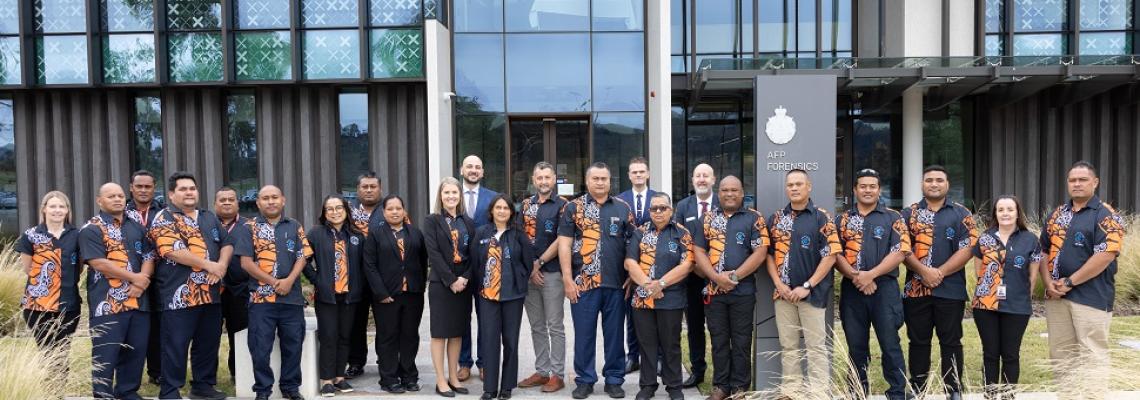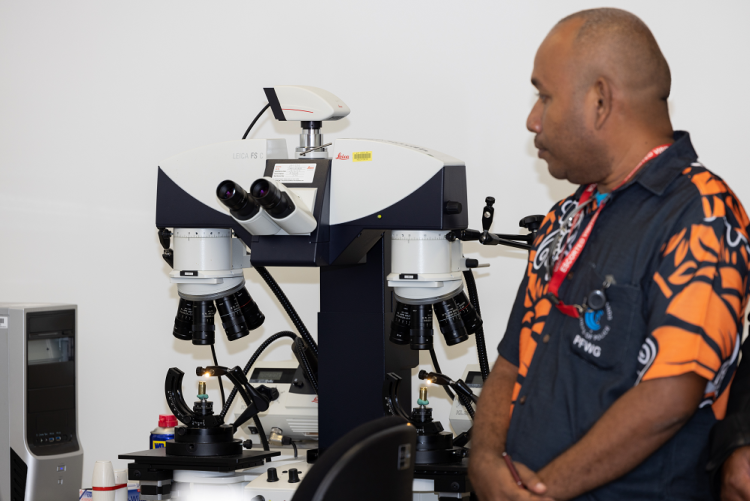RSIPF joins PFWG meeting in Canberra, Australia
Davies Kusapa during the training
The Royal Solomon Islands Police Force (RSIPF) took part in the Pacific Forensic Working Group (PFWG) meeting held in Canberra, Australia recently.
This was the first time the meeting had been held face to face in three years since COVID-19.
The RSIPF Forensic Unit is a member of the PFWG and two of the RSIPF forensic officers attended the meeting.
Supervising Forensic Officer In-charge Davies Kusapa and PFWG Digital Forensic Chair, Police Constable Gabriel Fakatonu joined the Australian Federal Police (AFP) and other members of the PFWG from Fiji, Samoa, Kiribati, Guam, Palau, Nauru, Cook Islands, Federated States of Micronesia, Tonga and Tuvalu to discuss how to strengthen and support forensic capabilities across the pacific region.
The PFWG is a regional body under the Pacific Islands Chiefs of Police (PICP) that works to enhance police forensic capabilities across the Pacific region. It allows partners to identify current challenges in investigative areas including digital forensics, crime scenes, fingerprinting and work together to overcome them.
The AFP through its Pacific Command and the Pacific Police Development Program Regional (PPDP-R) continues to support the forensic needs of its pacific partners by providing specialist equipment, offering training and deploying forensic members overseas to assist with investigations.
The AFP’s International Forensic Engagement (IFE) team plays an important role in coordinating offshore forensic activities to ensure pacific partners are well supported.
AFP Chief Scientist, Dr Simon Walsh, said the AFP had forensic members based in pacific countries who worked side-by-side with local partners.
“The AFP has Forensic Advisors based in the Solomon Islands and Timor-Leste and an IFE member working remotely from Fiji, these members are on the ground supporting and mentoring their counterparts in digital forensics, crime scene investigation and fingerprint comparison,” Dr Walsh said.
The IFE team also ensures members from Pacific nations have the opportunity to travel to Australia to undertake training and observe the capabilities of and engage with experts from the AFP Forensics Command.
“So far this year, we have had the pleasure to host dignitaries from Fiji, Tonga, Solomon Islands, Vanuatu, Samoa and Kiribati, where they were able to tour the AFP’s world-class forensics facility in Canberra and learn more about the work we do.
It also gives the AFP valuable insight to understanding the current capability in the Pacific as well as identify opportunities for development or enhancement,” Dr Walsh said.
He said the
PFWG meeting was a fantastic opportunity for Pacific partners to come together and share information to ensure the best forensic outcomes for all police forces in the region.
“The Pacific is a vast environment with multi-faceted policing challenges and the AFP is committed to continuing our strong relationship to help combat transnational serious organized crime threats in the region, establish best practice forensic techniques and improve forensic capabilities,” Dr Walsh said.


